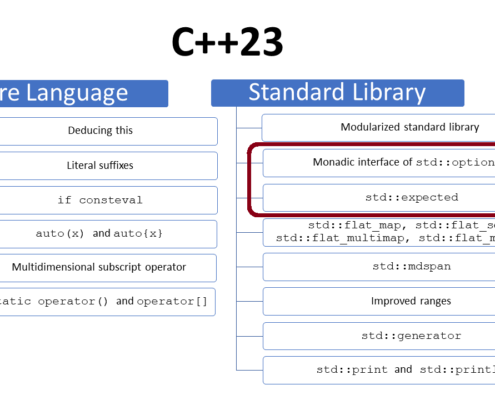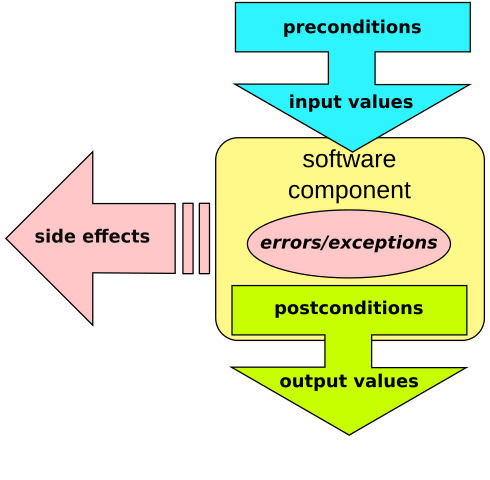Posts

C++23: A New Way of Error Handling with std::expected
C++23 extends the interface of std::optional and gets the new data type std::expected for error handling.
Before…

C++ Core Gudelines: goto considered Evil
/
0 Comments
If you can't throw an exception and can't use final_action (finally) from the guideline support library,…

C++ Core Guidelines: finally in C++
To make my point clear, this post is about the exceptional case that you can not throw an exception.…

C++ Core Guidelines: Rules about Exception Handling
Today's post is about the right way to throw and catch exceptions. This means when you should throw and…

C++ Core Guidelines: A Short Detour to Contracts in C++20
My original plan was it to write in this post about the next rules to error handling. But I changed my…

C++ Core Guidelines: Rules for Error Handling
Error handling is an essential part of writing good software; therefore, the C++ core guidelines have…
